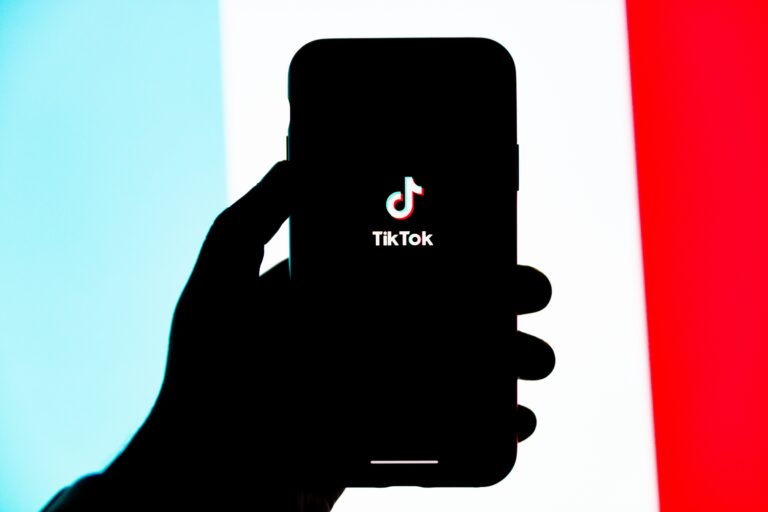How to Build a Fanbase as a Musician
If you want to see any meaningful success as an artist, you must consider your fan base. In other words, you need to imagine everything about your average listener — their hobbies, where they live, and most importantly, why they listen to music in the first place.
This is how you identify your target audience — or target listener. Once you have these answers, you can start creating more impactful music. So how do you begin finding your target audience?
Surveys, social media interactions, and standard market research will bring you what you need to know. After identifying what your future fans want, you can begin writing music that speaks to them. But this only works if you follow the right strategies.
That’s what this article is all about. Read on to learn about boosting your audience numbers to new heights.
Why is it Important to Identify Your Target Audience?
To successfully build a fanbase, you must first identify your target audience. This term will sound rather familiar if you’ve taken any marketing or business courses. But being a musician is undoubtedly similar to running a brand — scratch that, it is identical to running a brand.
Thus, you must connect your band brand to the right people. You wouldn’t try to sell a Kawasaki motorcycle to a cautious old woman. Likewise, you don’t want to market your music to the wrong audience unless you like wasting time and embarrassing yourself.
Helps you Better Connect to your Musical Brand
If your music is of a niche genre, it’s a bit harder to find the kind of fans that keep showing up to your gigs. However, this doesn’t mean you should ditch your musical vision in favor of mass appeal. Devout fans are worth far more than casual listeners.
To accomplish this, you must define your band’s brand. Define your musical style, message, and most importantly your reasons for being a musician. Afterward, you can cater your digital presence to match that and attract the right kind of people.
Also, if you aren’t already actively using social media, start now. For pointers, check out or guide to social media for musicians!
Gives you a Focus when Writing Digital Content
Speaking of your digital presence, the next big reason for identifying your target audience is providing focus. When you write digital content, be it an electronic press kit (EPK), website, or Instagram post, it isn’t enough to go, “Hey, my new single just dropped. You should listen to it”. You need to give people a reason to listen to it.
For example, “Hey, my new <whatever genre> single just dropped. It’s a nod to fear and uncertainty with an ironically upbeat twist” works better, provided you tweak it appropriately.
You Can Create a “Target Persona” (or many of them)
Finally, identifying your target audience allows you to craft a “target persona”. A target persona is the epitomal, stereotypical version of your ideal listener. While stereotypes are harmful in most contexts, in this instance it makes sense (when you base it on interests and personality characteristics).
Of course, it’s impossible to put all of your potential fans into a box. Thus, don’t assume that those who don’t meet your defined trait checklist won’t be interested in your music. To mitigate this problem, you can create several target personas. However, even with multiple boxes, you won’t have enough for everyone.
Ultimately, your persona will prove a seemingly silly but exceptionally useful tool.
What Can You Do After Finding Your Audience?
Once you’ve found your audience, pat yourself on the back for getting the most pain in the *** task out of the way. Now you can focus on developing a strategy to suit your audience.
You should know your target persona like a friend you’ve known for years. Forget the fact that it’s a figment of your brain that didn’t exist a week ago.
Ask yourself:
Ask Yourself “What Would My Persona Want?”
Let’s say your persona is named Ted. Ted is edgy and wants you to know it. He doesn’t care for popular music and only punk music will do. If you mention Green Day when discussing punk music he will punch you in the face.
This is only one example, but we can make some decent guesses about what Ted might want. For example, we can assume that Ted isn’t a fan of pop. Pure, unaltered punk that remains just obscure enough to remain true is all that will do.
Granted, this isn’t the most scientific or precise means of market research. However, it is one of the more entertaining forms of market research. You might be surprised by what you learn!
Just be careful not to put the desires of your persona above those of your real fans. As you learn more about your audience, it is okay to change your persona to better reflect the truth.
Write and Produce Better Content for that Audience
Good content is subjective. Obviously.
Thus, you must not only produce content that is generally decent (i.e., good use of language and whatnot), but you must also tailor that content to what your fans want. In other words, interacting with your audience should take precedence over everything else. The time you spend actually writing stuff should be comparatively small.
Unfortunately, we cannot tell you what your audience will want. There are so many fanbase configurations that it would take a 10,000-page e-book to answer all your questions (and it would still fail to address your wholly unique audience). Before you can produce better content, you need to understand what classifies.
Look to similar artists that you feel best embody what you represent. Of their digital presence, what types of posts draw thousands of hits? What types of statements have backfired? Take a healthy helping of inspiration as you create your own posts, articles, or any other written content.
This might all sound vague, but don’t worry. Ultimately, this will become easier once you’ve not only identified your audience but have discovered — or built — your musical niche.
Create Ads Using the Information You Collect
Ads are a bit of a sensitive topic, especially online. Most people complain about them, especially when they hog precious space on their front-page feed. Nevertheless, some ads are far more annoying than others.
When creating ads, your goal is to make them as un-annoying as possible. They do work. But how can you present ads to your target audience in a tasteful, non-cringe way?
Most of the time, ads are annoying because they get viewed by people outside of their target demographic. When grandma sees an ad for Raid: Shadow Legends interrupt her when she’s trying to connect with an old friend on Facebook, you can bet grandma’s gonna be frustrated.
This is why the information you collect is so vital. With it, you can create campaigns that truly engage your fans. Efficient ads target only the people who might be interested in your music.
But while there’s no such thing as a perfect engagement rate (some people won’t care, and that’s okay), there is such a thing as an exceptional engagement rate. And you can measure this based on averages. Obviously, if more people interact with your ads and check out your music than is usual, you’re doing well.
So how can you use the information about your audience to create good ads?
Again, examples lead the way. Other artists have conquered the ad game, and you can learn much from them.
We’re not saying to copy and spin other people’s content without original thought. Following examples of successful ads means understanding the components, such as the call-to-actions (CTAs), visuals, links, and more that grasp people’s attention.
Your music is original, so your ads should be too. But when it comes to catching eyes and ears, the rules are more or less consistent — even outside of the music space.
Images should pop. The message should be clear. Consider getting some feedback from friends before you start spending ad money and revise until it’s almost perfect. You can always revise ads later, but the sooner you tweak it the more money you’ll save.
Check out our guide for everything you need to know before releasing an album.
What Questions Should You Ask When Finding Your Audience?
Asking questions is the key to getting answers. This is true in every subject you can name.
As a musician, you’ll need to ask even more questions than most. You cannot Google “what does my audience want” and get a perfectly tailored answer. Specifics are crucial.
This article won’t tell you everything, either. However, we can arm you with the right kinds of questions that will give you personalized results (which are the most useful kind).
Where do you begin? Start with:
- Where do my fans live?
- What other artists do my fans enjoy most?
- What are my fans’ hobbies?
- How (and where) do my fans spend their weekends?
- How do your fans think? What are their beliefs?
You can learn a lot from devout investigation. We’re not saying to break into someone’s home, hide under their bed, and emerge at midnight to ask them about their greatest fears. Instead, you want to learn all the information you can from your audience that they’re willing to provide. This will only help them better enjoy the music you write, which benefits everyone.
The best way to receive buttloads of useful information is through polls. For example, Instagram polls provide amazing insights about your fans. It only takes a couple of seconds for someone to provide feedback, so you don’t need to worry about the whole “short attention span” thing.
What Tools Can You Use to Find Your Target Audience?
We’ve already covered the greatest tool: the question.
However, casual questions may not provide the concrete data you need for informed music marketing decisions. This is where analytics come into play. Among the most useful analytical tools you’ll use are:
- Spotify
- Google Analytics
- YouTube Analytics
- Facebook (and Instagram)
Spotify takes the top of this list because it is, by far, the most popular music streaming platform. It includes many tools for musicians to see what the world is listening to, and what niches are in need of fresh music.
Google Analytics is one of the most used tools for digital marketing and search engine optimization (SEO). It is ideal for discovering user habits as they pertain to your website or online EPK.
Meanwhile, YouTube has over 1 billion users. While YouTube includes much more than music, music videos and promo videos make up their fair share of traffic.
Facebook and Instagram, of course, are two social media giants. There is a good chance you use at least one of them. Because they’re both currently owned by the same company (Meta), you can easily “bundle” analytics. Thus, you’ll see the full picture for your Instagram and Facebook account as if they were one.
The Power of Surveys
You can also have your viewers take a survey. Like polls, surveys are a question tool (and we’ve already emphasized the power of asking). However, surveys go into more depth. If you can coax people to take a minute or two to fill one out, you’ll be greatly rewarded.
Here are a few things to keep in mind for quality results. Firstly, surveys that take less than 5 minutes to complete are ideal. Ten to fifteen multiple choice responses, or five to ten multiple choices with one to two open-ended questions are best.
Less is more.
Observing Live Shows
Finally, there’s the old-school method of looking around at a live show. If you are a concertgoer yourself, you will no doubt observe others who have similar music tastes. Meeting people face-to-face is underrated. If you find the prospect intimidating, the refreshments can help.
Just don’t go overboard and say or do something you’ll regret. Many concertgoers are actively recording.
What if You Haven’t Grown an Audience Yet?
We’ve discussed several tools for learning more about your fans. But what if you don’t have much of a fanbase yet?
Don’t worry. Almost every musician goes through this phase. Fortunately, you can learn from other similar bands — ideally local ones that you can get in touch with at some point.
Ultimately, collaboration is the best thing you can do to build your fanbase. Once you get a good working relationship with a band or musician in your musical niche, chances are they’ll be happy to “share” some of their listeners.
Take plenty of inspiration from others, but don’t be a carbon copy. There’s a heaping pile of unoriginal music on Spotify, YouTube, Apple Music, and more. People don’t need (or want) more of the same stuff.
Stay true to your inspirations, but don’t neglect your own experiences. Do the undone — this is how you stick out from the pile of uninspired rubbish.
Tips for Growing Your Target Audience
Before you can grow your target audience, let’s get a brutal truth out of the way. Some people may love you, but others will think your music is trash. This is to be expected.
Every groundbreaking musician is hated by many. Controversy is a mark of honor and a certificate of true success.
No artist is universally loved. Not even The Beatles. Famous producer Rick Ruben said something insightful about recruiting Slayer to the same effect:
Tip One: Accept that not everyone will love your music
This is why you’ve seen the word “niche” countless times in this article already. A niche is a subset of the population. Even the most popular artists have a niche.
Concern yourself only with those who are solid candidates for your music. You’ll find plenty.
Tip Two: Be Patient
You might feel the need to slap yourself in the face at how cliche this tip is. Nevertheless, many people find themselves frustrated because they don’t achieve the number of fans they’d hoped they’d have by month 6, year one, and so on.
It can take time. Celebrate growth as it comes. Small accomplishments are meaningful, so don’t brush them off because they “could be more.”
Conclusion
The keys to success in building a fanbase as a musician are as follows.
- Be active on social networks (don’t create an account and ignore it)
- Use data from your audience
- Leverage the fanbase of similar bands or musicians to grow your own
- Be original. It matters.
It’s not easy to grow a fan base from scratch. It can feel like a full-time job to see the results you want, especially in the beginning. It is worth it, though. Experimenting with the strategies we’ve outlines will allow you to determine what works best for you. Then, you can cut out parts that aren’t quite worth your time.
That said, don’t over-strain yourself. It takes time and effort, but being a musician should offer enough fulfillment to counteract the stressful portions. If you’ve tried everything in this article but still aren’t seeing the results you’d like, step back and reflect. Everything is a learning experience.
As you grow, you can afford to outsource much of the work. You can then focus on writing music, traveling, and going to gigs and concerts.
Finally, remember that there’s nothing more important to you than your audience. Talk to them. If you don’t yet have a fanbase, now’s the time to figure out who they’ll be and meet them.






![How to Promote a Song Before Release [Song Promotion Ideas]](https://www.bythebarricade.com/wp-content/uploads/2022/12/pexels-lara-jameson-8898633-768x512.jpg)

